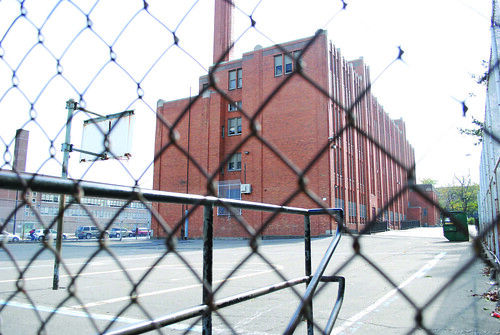Even though Temple is located in a city with numerous schools, many education majors plan on teaching in the suburbs after graduation. However, it is difficult to get a job in areas outside Philadelphia without first working in the city or substitute teaching for an extended period of time.
Temple students have remained positive about their future careers, despite the growing challenges facing inner-city classrooms.
The School District of Philadelphia is made up of of 281 schools and more than 10,000 teachers. According to a series of articles in the Philadelphia Inquirer, the district is having trouble filling vacancies and keeping teachers around for the current school year.
“Everyone I’ve ever talked to told me not to teach in Philadelphia because it’s dangerous, so I’m waiting to find out for myself,” said Alex Billotte, a freshman elementary and special education major.
Melissa Davies, a 2006 Temple graduate, agrees.
“I could have been hired in the School District of Philadelphia, however, I did not intend on staying in Philadelphia,” she said.
Emily Meyers, an undergraduate adviser in the College of Education, said it is almost impossible to get a job in the suburbs straight out of college because most suburban schools want new teachers to have three years of experience in the city.

“Philly gets them broken in and trained,” Meyers said. However, as soon as they are able to, they go to schools with “a little bit better working conditions in the suburbs.”
“After three years, they want to work in the suburbs,” Meyers said.
Even though it might be easier for graduates like Davies to get jobs in the city, some want to go back to their hometowns to teach.
“I went home to Hazleton, and it is very hard to get a job there even though the district is large,” Davies said. “I have been substituting for about two and a half years because it is the only way to get in the district.”
Billotte said he expects his student teaching experience to shed some light on where he will want to end up.
He said he hopes to gain “an understanding of what it would be like teaching in the Philadelphia School District.”
“I haven’t done my student teaching yet, but I think after graduation, I’ll end up in the suburbs or leaving Philadelphia entirely,” Billotte said.
Davies said during her time at Temple, she wanted more chances to be in a real classroom.
“I wish we had more opportunities to be in the classroom. Other universities have you in the classroom from your first semester and give you multiple placements for your student teaching,” she said. “I think that would have made my time at Temple even more valuable. The quality was there, but the quantity was lacking.”
Current students said classroom immersion has improved.
“As a first year student, Temple has already begun getting me into the field and teaching around the community. So far I have taught at the Gesu School in North Philly,” said Shanna Phillips, a freshman secondary education and history major. “It has been an enriching experience working with kids who are mostly there on scholarship. They are some of the most polite children I have ever met.”
Meyers said she is confident in Temple’s ability to provide students with a good foundation for what comes next.
“Most of them say they were better prepared than colleagues from other colleges,” she said.
“I love how Temple is putting me into the field so early, so when I do my student teaching, I will not be so overwhelmed,” Phillips said.
“My experience at Temple gave me the insight into things that I would have never experienced if I would have stayed at home,” Davies said. “My professors were great, even the ones I did not like as much. I probably learned the most from them.”
Challenges and all, Davies emphasizes the value of the student teaching experience.
“Most of all was the experience in the field, which opened my eyes to what the world is faced with. It challenged me. I will never forget it.”
“I already know that teaching is what I want to do with my life, so I guess that’s whats motivating me,” Billotte said.
“While I was in high school, many of my teachers inspired me and my peers,” Phillips said. “I would like to affect someone else’s life in that way.”
Even though substitute teaching provides many difficulties, Davies remains just as content with her field of study as Temple’s optimistic freshmen.
“I wanted to make a difference. I wanted my job to matter in the world,” Davies said. “Education is one of the most important things in this society and I help to facilitate that need to our youth.”
Valerie Rubinsky can be reached at valerie.rubinsky@temple.edu.



Be the first to comment